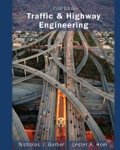
Concept explainers
To describe:
The process of distillation by which asphalt cement is produced from crude petroleum and the process of obtaining asphalt binders which is used to coat highly siliceous aggregates.
Explanation of Solution
Asphalt cement is obtained after the segregation of lubricating oils. It's semi-solid hydrocarbon with certain physio-chemical characteristics which make it a good cementing agent.The processes of refining that are used to obtain petroleum asphalts are mainly of two types:
- Fractional distillation.
- Destructive distillation.
Fractional distillation:
It includes the following steps:
- Fractional distillation comprises of segregation of different materials in crude petroleum without substantial changes in their chemical composition.
- It includes removal of different types of volatile materials in the crude oil by gradually increasing temperatures by using steam or by vacuum.
- The crude petroleum at high temperatures gets separated in the distillation tower and gets collected on the successive trays.
- The temperature is increased by steam or by vacuum process.
Destructive distillation:
It includes the following steps:
- Destructive distillation also known as cracking includes application of enormously high temperature and pressure which results in the chemical composition of the materials.
- Destructive distillation involves intense heat as high as 1100OF and high pressure up to 735 lb/in2 to produce effective changes in the chemical composition of the materials.
- This process is mainly used when high quantities of the light fractions of materials are required.
- The asphalt cement from this process is not used in pavement because it is more vulnerable to climate changes comparative to that produced from the fractional distillation.
The process of obtaining asphalt binders that can be used to coat highly siliceous aggregates can be defined as follows:
1. Asphalt binders are formed from the asphalt cement, by breaking the asphalt cement into minute particles, usually 100 to 250 in penetration range and spreading them in water with an emulsifier.
2. The small particles that are produced are electrically like charged, and hence they don't merge.
3. Asphalt emulsions mainly consist asphalt around 55% to 70 % by weight with an emulsifying agent and a stabilizer in some cases.
4. These emulsions are classified into three categories, which are anionic, cationic and nonionic. Out of these, cationic emulsions are more effective with the electronegative aggregates for example those having high percentages of siliceous material.
Want to see more full solutions like this?
Chapter 18 Solutions
Traffic and Highway Engineering
- A tension member made of L4x4x1/2 is connected to gusset plate with welds. Using E70electrode and ½ inch weld size, design the balanced weld lengths.( Use AISC manual, LRFD units)arrow_forwardUsing the ultimate strength method, determine the maximum load, Pu, that the welded connectioncan carry. Weld size is ½ inch. The structural members are made of grade 50 steel. (Use AISC manual, LRFD units)arrow_forward21:52 | 2.3Kb.s ← CamScanner ۲۰۲۵-۰۴... هوا 8:05: ان 4.5G 443% به نام خدا تمرینات درس مکانیک سیالات سری دوم - حامد سرکرده 0.3m A 0.3m 0.6m روغن B $ 09 آب lm P=13.74kpa gage PA هوا 4.6m سال 0.3m 50mm Pc 13.72kpa gage EL = 50 EL = 30 ۱ در شکل رو به رو فشار در نقاط A, B, C,D بر حسب پاسکال چقدر است؟ فشار P چقدر است چگالی روغن ۰/۸ میباشد در داخل مخزن استوانه ای رو به رو که محتوی نفت به چگالی ۰/۸ میباشد مخزن استوانه ای آبی قرار گرفته است. مقدار P فشار نسبی در فشارسنج (A) و ارتفاع h چقدر است. ۴- لوله های A و B که حاوی آب در فشارهای ۲/۷۶ و ۱/۳۸ بار به ترتیب هستند اختلاف ارتفاع جیوه در مانومتر نشان داده شده در شکل چقدر است؟ چگالی جیوه ۱۳/۵۷ در نظر گرفته شود. Scanned with CamScannerarrow_forward
- h EL = 50 EL = 30arrow_forwardh EL = 50 EL = 30arrow_forwardCalculate the instantaneous deflections and the long term-term deflections after 15 years for the flat roofbeam shown below (simply supported). Use fy = 60,000 psi, fc′ = 4000 psi, and assume that the uniformdead load value shown does not include beam weight, and that none of the concentrated live loads aresustained. The concrete weight is 135 pcf. Investigate the deflection acceptability of the beam accordingto the ACI Code.arrow_forward
- a) Determine the global stiffness matrix of the beam shown in Figure below. Assume supports at 1 and 3 are rollers and the support at 2 is a pinned support. Indicate the degrees-of freedom in all the stiffness matrices. EI is constant. Use the values of w and L1 as 50 kN/m and 1.75m, respectively. Note, L2=3L1. b) Determine the rotations at all the nodes of the beam and reactions at the supports. Show all calculations. c) Draw the BMD of the beam on the compression side showing the salient values. What are the maximum bending moments of the beam? Draw the deflected shape of the beam.arrow_forward20 ft 8 #8 in 2-layers 18 in 30 inarrow_forwarda) Calculate the BMs (bending moments) at all the joints of the beam shown in Figure below using the moment distribution method. The beam is subjected to an UDL of w kN/m. L1= 0.4L. Assume the support at C is pinned, and A and B are roller supports. E = 200 GPa, I = 250x10^6 mm4. Use the values of w and L as 50kN/m and 5m respectively. b) Draw the shear force and bending diagrams for the entire beam. c) Calculate the BMs at all the joints of the same beam shown in Figure using the slope deflection method. d) Compare the values of BMs obtained using the two methods a) and c) and comment.arrow_forward
- The interior floor beam shown below at 3-year service life according to the ACI Code, supports partitions,etc. Maximum service load moments are 38 kip-ft dead load and 29 kip-ft live load. Assume that 50% ofthe live load is sustained. Use fc′ = 5000 psi, fy = 75,000 psi.a. Determine if the minimum deflection criteria from ACI is satisfied.b. Find the effective moment of inertia.c. Find the maximum instantaneous and long-term defecations.d. Check if the deflections are within ACI allowable limitsarrow_forwarda) For the truss shown in the figure below, determine the stiffness matrices of elements 2, 3 and 4 in the in the global co-ordinate system. Assume for each member A = 0.0015 m2 and E = 200 GPa. Indicate the degrees-of freedom in all the stiffness matrices. b) Determine the stiffness matrix of the whole truss in the global co-ordinate system. Clearly indicate the degrees-of freedom numbers in the stiffness matrix. c) Calculate all the nodal displacements and all the member forces of the truss.arrow_forwarda) Draw a 2D element and show the dofs (degrees of freedom). Draw all the 2D elements used in Strand7. Explain the differences between these elements in terms of the no. of nodes and interpolation/shape functions used. b) A 8 m x 8 m plate (in the xy plane) with 8 mm thickness, is fixed at all the edges and is loaded by a pressure loading of 4 kN/m2 in the downward (-z) direction. The plate is made of steel (E = 200 GPa, density = 7850 kg/m3). Explain the steps involved in setting up a Strand7 model for this problem. Your explanation should include how the given input data for this problem will be used in Strand7 modelling. Explain how you would determine the maximum deflection from the Strand7 output.arrow_forward
 Traffic and Highway EngineeringCivil EngineeringISBN:9781305156241Author:Garber, Nicholas J.Publisher:Cengage Learning
Traffic and Highway EngineeringCivil EngineeringISBN:9781305156241Author:Garber, Nicholas J.Publisher:Cengage Learning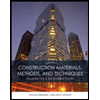 Construction Materials, Methods and Techniques (M...Civil EngineeringISBN:9781305086272Author:William P. Spence, Eva KultermannPublisher:Cengage Learning
Construction Materials, Methods and Techniques (M...Civil EngineeringISBN:9781305086272Author:William P. Spence, Eva KultermannPublisher:Cengage Learning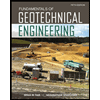 Fundamentals of Geotechnical Engineering (MindTap...Civil EngineeringISBN:9781305635180Author:Braja M. Das, Nagaratnam SivakuganPublisher:Cengage Learning
Fundamentals of Geotechnical Engineering (MindTap...Civil EngineeringISBN:9781305635180Author:Braja M. Das, Nagaratnam SivakuganPublisher:Cengage Learning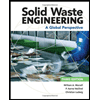 Solid Waste EngineeringCivil EngineeringISBN:9781305635203Author:Worrell, William A.Publisher:Cengage Learning,
Solid Waste EngineeringCivil EngineeringISBN:9781305635203Author:Worrell, William A.Publisher:Cengage Learning,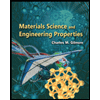 Materials Science And Engineering PropertiesCivil EngineeringISBN:9781111988609Author:Charles GilmorePublisher:Cengage Learning
Materials Science And Engineering PropertiesCivil EngineeringISBN:9781111988609Author:Charles GilmorePublisher:Cengage Learning Fundamentals Of Construction EstimatingCivil EngineeringISBN:9781337399395Author:Pratt, David J.Publisher:Cengage,
Fundamentals Of Construction EstimatingCivil EngineeringISBN:9781337399395Author:Pratt, David J.Publisher:Cengage,





